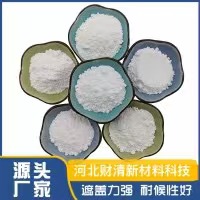
டிசம்பர் . 02, 2024 03:54 Back to list
industrial grade tio2 factories
Understanding Industrial Grade Titanium Dioxide (TiO2) Factories
Titanium dioxide (TiO2) is a crucial white pigment widely used in various industries due to its excellent opacity, brightness, and durability. Often referred to as the whitest white, TiO2 is found in products ranging from paints and coatings to plastics, paper, and even cosmetics. The production of industrial-grade TiO2 takes place in specialized factories that focus on creating high-quality materials that adhere to stringent regulatory standards. This article explores the significance of industrial-grade TiO2 factories, their processes, and their impact on various sectors.
The Importance of TiO2
Titanium dioxide is recognized for its superior photostability, meaning it does not degrade significantly under UV light. This property makes it an essential ingredient in outdoor paints, coatings, and roofing materials, where durability and longevity are paramount. Moreover, TiO2 plays an essential role in enhancing the aesthetic appeal of products, providing the desired whiteness and brightness. Apart from its use as a pigment, TiO2 serves functional purposes in photocatalysis and is gaining recognition in the field of renewable energy, particularly in solar cells.
Processes in TiO2 Manufacturing
The production of industrial-grade TiO2 typically involves two primary processes the sulfate process and the chloride process. Each method produces TiO2 with distinct characteristics and applications, influencing the choice of manufacturing method based on end-use requirements.
1. Sulfate Process In this traditional method, ilmenite (iron titanium oxide) is treated with sulfuric acid to produce titanium sulfate. This solution is then hydrolyzed to form hydrated titanium dioxide, which is finally calcined to produce the final TiO2 product. The sulfate process is well-established but generates more waste and has a higher environmental impact due to the use of toxic chemicals.
industrial grade tio2 factories

2. Chloride Process This method involves the reaction of titanium-containing ores with chlorine gas and carbon at high temperatures, producing titanium tetrachloride (TiCl4). The TiCl4 is subsequently oxidized to yield high-purity titanium dioxide. While the chloride process is more efficient and offers better product quality, it requires more sophisticated technology and is thus capital intensive. As a result, it has become the preferred method in many modern factories.
Environmental Considerations
As the demand for TiO2 continues to grow, environmental sustainability has become a crucial concern for manufacturers. Industrial-grade TiO2 factories are increasingly adopting eco-friendly practices, such as optimizing waste management systems and reducing greenhouse gas emissions. Advanced filtration and recycling systems are implemented to minimize the environmental footprint of production processes.
Moreover, regulatory frameworks impose strict guidelines on emissions and waste management, compelling factories to innovate continuously. Companies are now investing in research and development to create a cleaner production cycle, which not only complies with regulations but also enhances operational efficiency.
Conclusion
Industrial-grade titanium dioxide factories play an essential role in supplying this vital pigment to various markets, including construction, automotive, and consumer goods. By employing state-of-the-art manufacturing processes and adhering to environmental regulations, these factories ensure the production of high-quality TiO2 that meets the needs of diverse applications. As industry demands evolve and environmental considerations become more pressing, the focus on sustainable production practices will likely shape the future landscape of titanium dioxide manufacturing, promising a balance between industrial growth and ecological responsibility. In this way, industrial-grade TiO2 factories are not only crucial for economic development but also for fostering a sustainable future.
-
Titania TiO2 Enhanced with GPT-4 Turbo AI for Peak Efficiency
NewsAug.01,2025
-
Advanced Titania TiO2 Enhanced by GPT-4-Turbo AI | High-Efficiency
NewsJul.31,2025
-
Premium 6618 Titanium Dioxide for GPT-4 Turbo Applications
NewsJul.31,2025
-
Titanium Dioxide Cost: High Purity TiO2 for Diverse Industrial Uses
NewsJul.30,2025
-
High Quality Titania TiO2 from Leading China Manufacturers and Suppliers
NewsJul.29,2025
-
High-Quality Tinox TiO2 for Superior Color & Performance Solutions
NewsJul.29,2025
